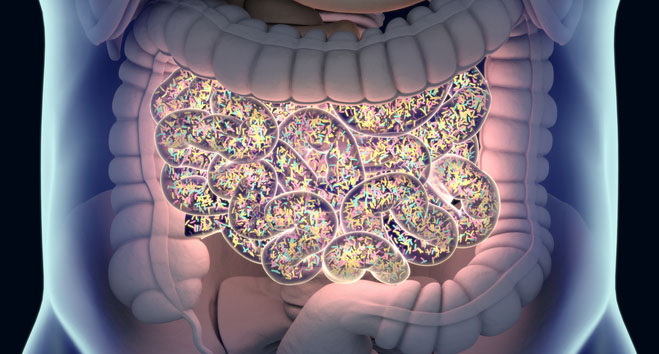
Gut microbes could play a role in the intense anxiety some people feel in social situations and potentially represent a therapeutic target, research suggests.
Mice given fecal transplants with microbiota from people with social anxiety disorder (SAD) showed a heightened sensitivity to social fear, which was accompanied by changes in immunity and in the brain.
This was not seen among animals receiving similar transplants from matched individuals without the psychiatric disorder, the researchers report in the Proceedings of the National Academy of Sciences.
John Cryan, from University College Cork in Ireland, and colleagues say their findings show that social fear responses operate across the animal kingdom.
They add: “Moving forward, the microbiota–gut–brain axis is an ideal target for identifying novel therapeutics to improve symptoms in SAD.”
SAD is a crippling psychiatric disorder in which people experience intense fear or anxiety in social situations that they may avoid as a result, the researchers explain.
Noting that current pharmacological treatments are often ineffective, the team attempted to examine the role of microbiota in SAD.
16S rRNA sequencing was performed on microbial DNA extracted from the stools of individuals with SAD and matched healthy control participants, none of whom were taking psychotropic or microbiota medications.
This indicated that SAD led to alterations in the bacteriome, the collective bacterial genome that makes up the majority of the active portion of the microbiome.
Mice that had received antibiotics to deplete their microbiota then received fecal microbiota transplantation from a specified donor and were tested for social fear, sociability, social cognition, and stress-coping behaviours, as well as gastrointestinal transit and motility.
By the end of the study, bacteriome beta diversity was significantly different between mice receiving transplants from people with SAD and those receiving them from healthy control individuals.
Animals receiving SAD microbiota had reduced levels of Bacteroides nordii, which has previously been shown to negatively correlate with neurodevelopmental behavior syndromes.
Reductions were also seen in Bacteroides cellulosiyticus, a bacterium that in higher relative abundances has been associated with fewer symptoms in hyperactivity, impulsivity, and inattention.
Mice inoculated with SAD also had raised levels of Phocaeicola massiliensis, formerly known as Bacteroides massiliensis, which been linked with posttraumatic stress disorder and prolonged social isolation stress.
General sociability and social novelty preference as well as other tests of stress-coping behaviors and gastrointestinal transit were unaffected.
In addition, SAD fecal microbiota transplantation reduced stress and immune functions, with reduced circulating levels of the glucocorticoid stress hormone corticosterone and peripheral immunity.
“Taken together, our findings provide novel evidence that the microbiota in individuals with SAD can generate increased social fear that is associated with impaired peripheral immune activation and neuronal oxytocin within the [bed nucleus of the stria terminalis] in mice,” the researchers conclude.
“This suggests that the microbiota can play a causal role in heightened social fear responses in the disorder.”













